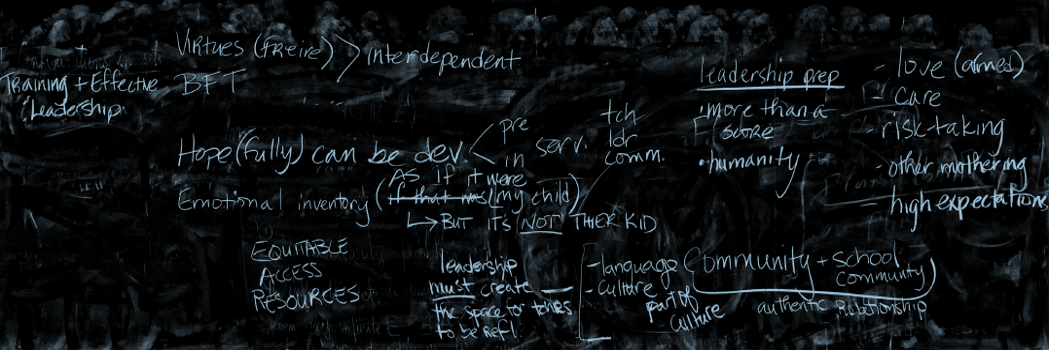Educational leadership conversations have been traditionally confined to school spaces, but the question is, why (Miller, Brown, Pons, 2011)? Well, we need to think about the structures and actors involved to answer the question. The structures involved are: local, state, and federal government who provided support in the forms of funding and resources; schools and the school districts they rise in–ie, the educational industrial complex; and the private institutions/business that make up the corporate structure that have ushered in since the 1980’s the neoliberalization of education. Local communities have too often been left out of educational conversations, more specially educational leadership conversations. So back to the question of why, doing so disrupts the current ways power is wielded within these structures. For example, school budgets could spend money on community resources and experts to bridge the academic and communal divide between Black and Brown communities and White run schools that exist in many Black and brown school districts. A Freirean approach to the educational inequities starts with recognizing the social conditions and inviting new actors to transcend traditional school-community boundaries. But this entails some type of group solidarity. And what these works don’t address is how to incite group solidarity. Yes, we know that groups can find shared experiences to ground their work. But how can educators who don’t have shared experiences as students magically become empathic to the needs of students? Mismatched student/teacher/leadership demographics is part of the poisonous well of “structural racism that has systematically denied Black and Latinx students access to opportunities in schools” (Rivera-McCutchen, 2019). When leaders are from and care about communities, such as that of Bowman and Bloomberg, they can take action meaningful at the intersection of education, government, and community to disrupt structural racial inequity.
Radical Care Sp21
Teaching & Leading for Justice in Schools




I enjoyed reading your post and your insights this week! Particularly your call for group solidarity and a need to incite more solidarity between schools and communities. Your suggestion to invest in community experts and resources to help bridge this divide is a good one. I agree that part of this separation is due to the cultural and racial mismatch of school administrators and teachers and the students and communities that they serve. How can we bring more local community actors into the conversation, actually bring them to the forefront of the conversation? I think that strong educational leadership is one approach, particularly the type of leadership that Freire calls for — a leader who works in solidarity with those whom she leads. Looking forward to continuing to unpack this in our class session tonight!